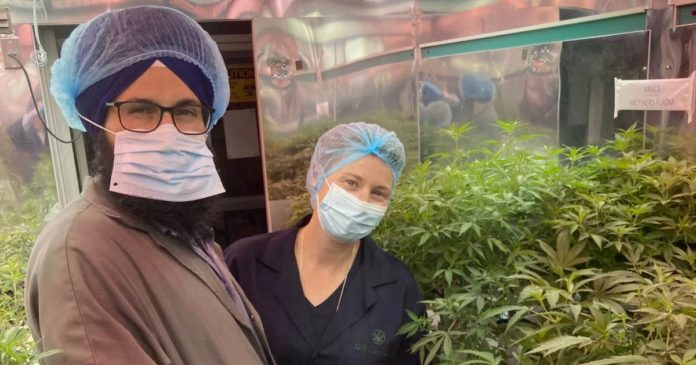New Zealand’s Helius Therapeutics is teaming up with local biotechnology company Greenlab on medicinal cannabis genetic development and breeding.
Helius was the first medicinal cannabis company in New Zealand to achieve GMP certification and be awarded a Licence to Manufacture Medicines. It has an 8,800 square-metre integrated facility in Auckland where the firm carries out indoor controlled cultivation, analytics, research, manufacturing, logistics, management and distribution.
Greenlab, based at Lincoln University, is engaged in research, development and cultivation of pharmaceutical grade medical cannabis compounds. It was the first New Zealand South Island based company to be awarded a research and development licence in August 2019, the same year it was founded.
The joint research programme is aiming to better understand the potential of medicinal cannabis and expand Helius’ genetics library. This will assist the company in developing specialised and targeted therapeutics for patients struggling with finding solutions through the use of conventional pharmaceuticals.
Commenting on the partnership, Chief Executive of Helius Therapeutics Carmen Doran said:
“Our decision to work with Greenlab will see us expand our breeding library with genetics unique and specific to New Zealand and to Helius. They have talented scientists, a dedicated research unit and equipment, as well as close ties to Lincoln University.”
Early this year, Helius also partnered with fellow local cultivator Puro, which will supply more than 10 tonnes of organic medical cannabis to Helius. The two companies will also share best practice and R&D for future products. Other partnerships include a collaboration with Auckland University of Technology (AUT) on research and development of medicines.
Something that’s really interesting in the Kiwi cannabis space is how many of the companies will work closely with each other on research and development, and more power to them for it.
“New Zealand’s quality standards are recognised throughout Europe and in many other countries,” said Ms. Doran. “However, like everything else, New Zealand must compete on quality not quantity. That’s why collaborations like this are so important for our country’s newest industry. We need to deliver new and novel products that work where others don’t.”


